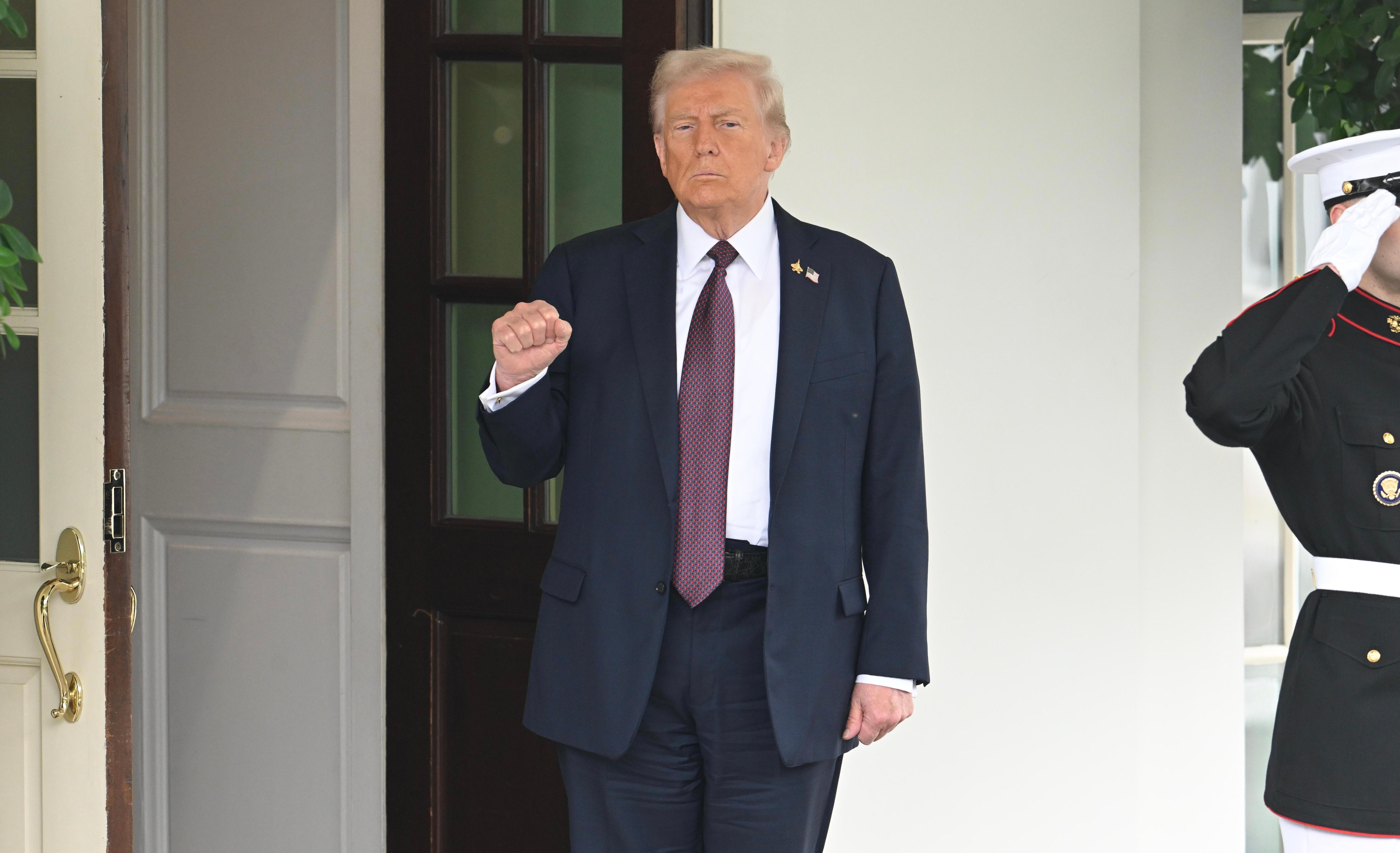Trump bought up to $6 million worth of corporate bonds in Boeing, even as the Defense Department has awarded the company multi-billion dollar contracts, new financial disclosures reveal.
According to the documents, Trump bought between $1 million and $5 million worth of Boeing bonds on August 28. On September 19, he bought more Boeing bonds worth between $500,000 and $1 million. In total, Trump appears to have bought at least $185 million worth of corporate and municipal bonds since the start of his presidency.
Kedric Payne, Vice President of the Campaign Legal Center, told RS in a phone interview there is “absolutely” a conflict of interest in Trump’s purchase of Boeing, especially since it is “a government contractor that is connected to military actions that the president controls almost unilaterally.”
Trump also bought between $1 and $5 million worth of Intel bonds in August, a week after the Trump administration took a 10% stake in the company. “I love seeing their stock price go up, making the USA RICHER, AND RICHER,” Trump posted on Truth Social on August 25. Trump purchased Intel bonds on August 29.
The partial purchase of the chip manufacturer, done under the auspices of driving technology research vital to national security, drew praise from some advocates of corporate accountability, including Sen. Bernie Sanders (I-Vt.).
Others raised concerns about how the U.S. government could maintain fairness. “Will the government favor firms in which it owns stakes over other competitors that might have better technology or processes?” asked Peter Harrell, a Non Resident Fellow at the Carnegie Endowment. Since the U.S. government’s partial ownership could give the Trump administration far more influence over the company, Trump’s personal investment in Intel could blur the lines between personal, corporate, and national interests. Intel has said the government’s partial ownership would be passive, with the government agreeing to “vote with the company’s Board of Directors on matters requiring shareholder approval, with limited exceptions.”
Upon entering office, Trump did not move his assets into a blind trust run by an independent trustee that could not be directed by the Trump family. Instead, he opted to hand over his business empire to his sons. The White House did, however, insist that the bond purchases were made by independent financial managers “using programs that replicate recognized indexes when making investments.”
The White House also claims that the investment decisions were not made by Trump or any of his family members, though stopped short of claiming this is a blind trust. It’s not clear who these financial managers are, or how strict the wall of separation between them and the Trump family is.
While Trump is not violating any ethics rule, there is a norm that presidents do not own investments in individual companies. Trump does not appear to have bought corporate bonds or individual stocks during his first term. Former President Joe Biden said that he would “never own any stocks or bonds” as a public servant, and appears to have followed through on that promise according to financial disclosures.
Meanwhile, the Trump administration has breathed a new life into Boeing. In March, Trump announced that Boeing would receive the coveted $20 billion development contract for the Air Force’s future F-47 fighter jet. The program is sure to be a cash cow for Boeing. Dan Grazier, a Senior Fellow at the Stimson Center, told the Associated Press then that the $20 billion price tag is just seed money. “The total costs coming down the road will be hundreds of billions of dollars,” he said.
After the government re-opened last week, the Pentagon announced a nearly $900 million sale of Boeing’s Chinook helicopter to Germany. In October, Boeing also won a series of contracts worth $2.7 billion to produce missile seekers alongside Lockheed Martin.
Last Monday, a White House official told Reuters that "President Trump fully complies with his reporting obligations and continues to demonstrate his commitment to transparency and accountability in the federal government.”
The White House did not respond to a request for comment.
















